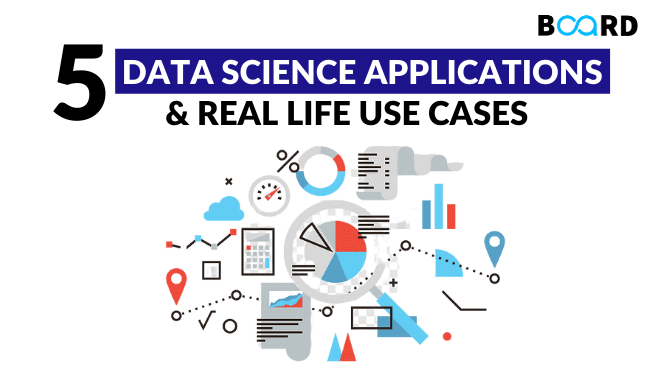
Data science is an interdisciplinary field that uses scientific methods, processes, algorithms, and systems to extract knowledge and insights from structured and unstructured data. It is a growing field and was ranked the #1 job from 2016-2019.
We’ll understand what data scientists are actually capable of within different industries like healthcare, sports, finance, social media, and more by going through these data science case studies.
1. Oncora Medical: Cancer Care Recommendations
Data science has a lot of applications, especially in the healthcare industry. The various industries in healthcare making use of data science are:
- Medical Image Analysis
- Genetics and Genomics
- Drug Discovery
- Predictive Modeling for Diagnosis
- Health bots or virtual assistants
Oncora’s software uses machine learning to create personalized recommendations for current cancer patients based on data from past ones. Health care facilities using the company’s platform include New York’s Northwell Health.
Their radiology team collaborated with Oncora data scientists to mine 15 years’ worth of data on diagnoses, treatment plans, outcomes, and side effects from more than 50,000 cancer records. Based on this data, Oncora’s algorithm learned to suggest personalized chemotherapy and radiation regimens. The system can also help identify signs of breast cancer early, allowing for more timely and personalized treatment options.
2. Liverpool F.C.: Player Predictions
“Moneyball” is a Hollywood movie casting Brad Pitt & Jonah Hill. This movie is about a baseball team (Oakland A’s) that has a budget too low to recruit any quality players. Due to this, they make predictions of player performance according to in-game statistics and buy “hidden gem” (cheap and underrated) players.
Liverpool F.C. used a similar method with data science last season. Liverpool’s football team almost won the 2019 Premier League championship with data science, which the team uses to ferret out and recruit undervalued soccer players.
Liverpool was long in the same bind as the Oakland A’s, according to the New York Times: It didn’t have nearly the budget of its competitors, like Manchester United, so it had to find great players before rich teams realized how great they were.
Data scientist Ian Graham, now head of Liverpool's research team, figured out exactly how to do that. It's not easy to quantify soccer prowess given the chaotic, continuous nature of play and the rarity of goals. However, Graham built a proprietary model that calculates how every pass, run, and goal attempt influences a team’s overall chance of winning. Liverpool has used it to recruit players and for general strategy.
3. IRS: Evading Tax Evasion
Tax evasion costs the U.S. government $458 billion a year, by one estimate, so it’s no wonder the IRS has modernized its fraud-detection protocols in the digital age.
To the dismay of privacy advocates, the agency has improved efficiency by constructing multidimensional taxpayer profiles from public social media data, assorted metadata, emailing analysis, electronic payment patterns, and more. Based on those profiles, the agency forecasts individual tax returns; anyone with wildly different real and forecasted returns gets flagged for auditing.
This use case of data science has saved them a lot of time as well as resources.
4. Instagram: Personalized Marketing
Instagram uses data science to target its sponsored posts, which hawk everything from trendy sneakers to dubious "free watches."
The company’s Data Scientists pull data from Instagram as well as its owner, Facebook, which has an exhaustive web-tracking infrastructure and detailed information on many users, including age and education. From there, the team crafts algorithms that convert users’ likes and comments, their usage of other apps, and their web history into predictions about the products they might buy.
Though Instagram’s advertising algorithms remain shrouded in mystery, they work impressively well, according to The Atlantic’s Amanda Mull: “I often feel like Instagram isn’t pushing products, but acting as a digital personal shopper I’m free to command.”
5. Tinder: Data-Driven Matchmaking
Now that many relationships begin online, data about your social world impacts who you get to know next. When singles match on Tinder, they can thank the company’s data scientists!
A carefully-crafted algorithm works behind the scenes, boosting the probability of matches. Once upon a time, this algorithm relied on users’ Elo scores, essentially an attractiveness ranking.
Now, though, it prioritizes matches between active users, users near each other, and users who seem like each other’s “types” based on their swiping history.
Conclusion
Data Science has a number of different uses, and evidently, multiple use cases. These were merely five of them, but as you can see, Data Science has made its presence and need felt in almost all fields of the world. It is taking the world by a storm and is being integrated more and more into our daily lives, every single day.
If you're also interested in learning Data Science and being a part of something this big, enroll in Board Infinity's Data Science Learning Path and become a certified Data Scientist. Get personalized mentoring from top industry experts and access to premium Data Science content along with assured placements!
